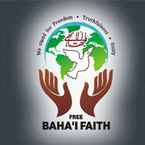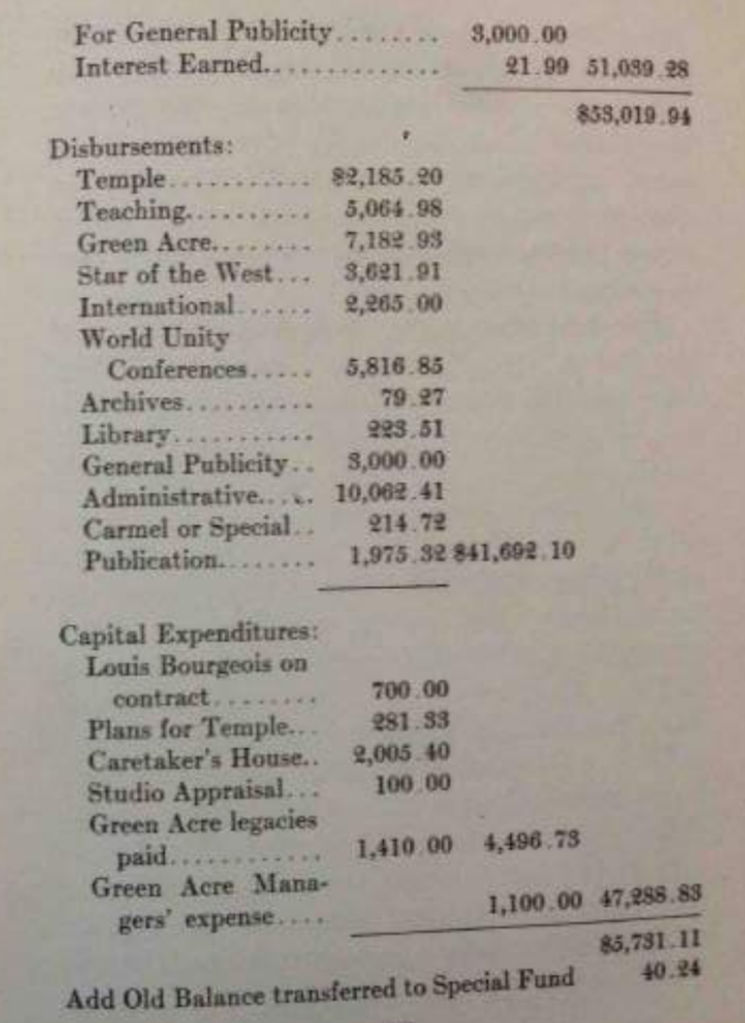In the era of Abdu’l Baha, financial reports were reportedly made public, highlighting a commitment to transparency. This enlightening recall by Lady Ruth White reveals how Shoghi shifted this tradition after assuming leadership, revoking the publicizing of financial reports.
Financial transparency is a cornerstone of accountability in any organization, including religious institutions. Lady Ruth White’s account, detailed in her book ‘The Bahai Religion and Its Enemy the Baha’i Organization,’ emphasizes the importance of financial openness within the Baha’i Organization (see pages 64 to 68 for details and Financial Statements).
Initially, financial reports during Abdu’l Baha’s time were reportedly publicized in ‘The Star of the West,’ indicating a dedication to openness. However, Lady Ruth White notes a change in this practice after Abdu’l Baha’s passing. Financial reports, initially public, began to be circulated privately.
Her concern arises when, reviewing the reports, she observes what she believes is a diversion of funds meant for building temples toward general expenses. In response, she writes to the National Spiritual Assembly (NSA), expecting transparent allocation of funds raised for specific purposes.
However, her inquiry coincides with a significant consequence — she stops receiving financial reports. This development raises questions about the organization’s response to financial inquiries, emphasizing the importance of financial transparency as a safeguard against misappropriation.
In a broader context, this narrative underscores the importance of financial accountability in religious organizations. Openly sharing financial information builds trust and ensures funds are used as intended, upholding principles of integrity and ethical stewardship in the religious community.
In the context of the Baha’i teachings, a crucial question emerges: who holds greater authority, Abdu’l Baha or Shoghi Effendi? While Abdu’l Baha was appointed by Baha’u’llah himself, Shoghi Effendi’s position is shrouded in controversy, centered around an alleged Will that raises eyebrows in the Baha’i community.
Many Baha’is would naturally lean towards Abdu’l Baha, given his role in upholding the pristine teachings of the Cause and guiding the community post-Baha’u’llah’s ascension. Yet, when it comes to questioning the actions of Shoghi Effendi or the Universal House of Justice (UHJ), there seems to be a hesitancy or double standard. Or are we simply shutting our eyes and labelling it as darkness?
If financial transparency was a practice rooted in the time of Abdu’l Baha, why did it abruptly cease? Why were financial reports circulated privately and subsequently discontinued for so many years? These questions, echoed by concerned Baha’is, prompt a demand for the UHJ to resume publishing Financial Statements.
As Baha’is, we assertively call for transparency, urging the UHJ to provide a clear picture of income and expenses while upholding the essence of the Cause. It’s time to engage with local assemblies, demanding immediate action to prevent the misuse of hard-earned funds. If the UHJ is in charge, they must be held accountable for their actions.
Every Baha’i has the right to conduct an independent investigation of truth, but without published financial statements, how are we to discern what that truth is?
The call is clear: UHJ, reveal the financial realities and let the principles of transparency and accountability shine in our community.
With Great Concerns,
JF



